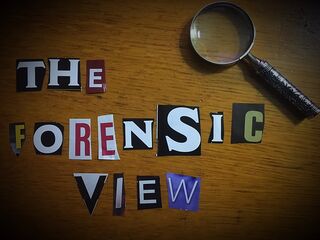Guilt
Officer-Involved Shootings in Cognitive Context
The role of language in the determination of guilt or innocence.
Posted June 3, 2022 Reviewed by Ekua Hagan
Key points
- A stressful situation can cognitively disinhibit a person's use of language, causing them to swear.
- Using profanity under stress is typical of the human fight-or-flight response, which accompanies any officer-involved shooting.
- An experiment reveals that officers' language use is important in the determination of guilt or innocence in officer-involved shootings.

Officer-involved shootings (OISs) have been extensively covered by media in recent years, with corresponding consequences for social unrest. OISs are of course frequently tragic—yet in some cases, even when a given OIS has been determined to have unavoidable, profound societal damage has remained.
Many of the relevant psychological dynamics of such cases lie in the realm of social psychology, and in the social dynamics fostered by media coverage of specific elements of OISs—but what can be said about the judgment of a given OIS from the standpoint of the cognitive processes involved?
This is a critical question. Cognition is basic to any given socially mediated response; and as it turns out, the cognitive importance of language, in any given OIS case, may become paramount.
Language and the stress response
A shooting response in any crime situation is of course extremely stressful for everyone involved, including the officer who may be forced by circumstance to fire a weapon. This stress generally results in a diminished level of prefrontal brain resources, a diminution which may contribute to disinhibition in the use of language—the officer involved in an OIS may very well use “bad” or inappropriate language.
This response may not reflect the officer’s personality or moral fiber at all—it may reflect the normal reduction of prefrontal blood-borne resources typical of the human fight-or-flight response, the response which accompanies virtually any OIS. The officer, consistent with the tactical situation, experiences physiological arousal. Blood-borne resources to the prefrontal cortex are reduced, and that officer’s cognitive and linguistic barriers may be reduced correspondingly. The officer may swear or use offensive language, not as a character flaw, but as a simple consequence of the biology of the human prefrontal cortex (e.g., Sharps, 2022) as the officer focuses mental resources on the tactical situation rather than on language use.
Yet this simple biological factor can have enormous consequences, in the criminal justice system and in the multimedia court of public opinion.
What happens in an OIS when a law enforcement officer swears?
We decided to find out, in a controlled experimental context (Sharps et al., 2019).
An experiment reveals the effect of officer profanity
The fate of an officer involved in an OIS is frequently decided by a jury. Jurors typically receive most of their information verbally. So, with the assistance of experienced law enforcement personnel, we created two versions of a verbal scenario in which a male officer shot an armed, adult male suspect. The versions were identical, except in one aspect. In one version, the officer’s language was innocuous. In the other, the officer used profane language of the type most typical of a violent altercation.
How did respondents, potential jurors, respond to the presence of profanity in the crime situation?
In terms of tactical importance and public safety, officer profanity made no difference to the judgment of the officer’s actions. In Likert scale evaluations, profanity had no significant effect on judgments of whether the shooting officer had “done the right thing” or “successfully resolved the situation,” although potential jurors did see the profane officer as less “professional” in his conduct.
But, tactically, jurors didn’t seem to care about officer language; since the officer did the right thing successfully, the officer was judicially okay. Right?
Wrong. When potential jurors were asked if the given officer was guilty, language made a huge and life-changing difference. Before a court, the most important aspect of any given case is guilt; and when respondents judged the guilt of a given officer in an OIS, even if the officer had done the right thing successfully, the officer who used bad language was judged as significantly more guilty.
These results indicate that even if an officer successfully resolved a dangerous situation, doing “the right thing” in that situation, the use of bad language tended to result in the judgment that the officer was guilty, the most important factor in the entire legal situation. Regardless of tactical success and “right” conduct, respondents saw the “profane” officer as legally guilty, a career-ending judgment that could lead to criminal proceedings and to civil actions of extraordinary financial hazard.
From an officer’s perspective, these findings have significant importance. No matter how heroic your tactical actions may be, you have to watch your mouth. The people you save may love how you dealt with the given situation, and how you saved their lives; but if you said any bad words, a typical consequence of a normal human high-stress response, these results indicate that you may be found legally guilty of a violent crime against the perpetrators of the given crime to which you responded.
Physical reality clearly exists, independent of human perception and cognition. This is as true of the criminal justice realm as it is of any other. Yet since we are confined to our human perceptual and cognitive powers, we may confuse the vast reality of the universe with the limited spectra we can perceive, interpreting what we perceive within that limited frame. Thus, our interpretations may not follow directly from physical reality as such. As linguistic creatures, we express our potentially inaccurate interpretations linguistically, including those which may have been influenced by the language in which they were initially introduced. This all boils down to the fact that language matters—we may think that a judgment is based purely on physical reality, when in fact it may be based on how the given situation was linguistically framed.
These results are consistent with the application of this view to the criminal justice system. An officer who responds to a violent situation silently may be a hero; but an officer who responds with inadvertent profanity, that normal effect of the human high-stress response, may be judged to be guilty, based on nothing more than the use of the word “guilty,” rather than the use of the phrase “did the right thing” or “successfully resolved.”
References
Sharps, M.J. (2022). Processing Under Pressure: Stress, Memory, and Decision-Making in Law Enforcement. Flushing, NY: Looseleaf Law Publicaions.
Sharps, M.J., Torkelson, J.F., Hulett, D.L., Kuhn, M.L., & Sevillano, C.N. (2019). Police Profanity and Public Judgments of Guilt and Effectiveness in Officer-Involved Shootings. Journal of Police and Criminal Psychology, 34, 87-90.




